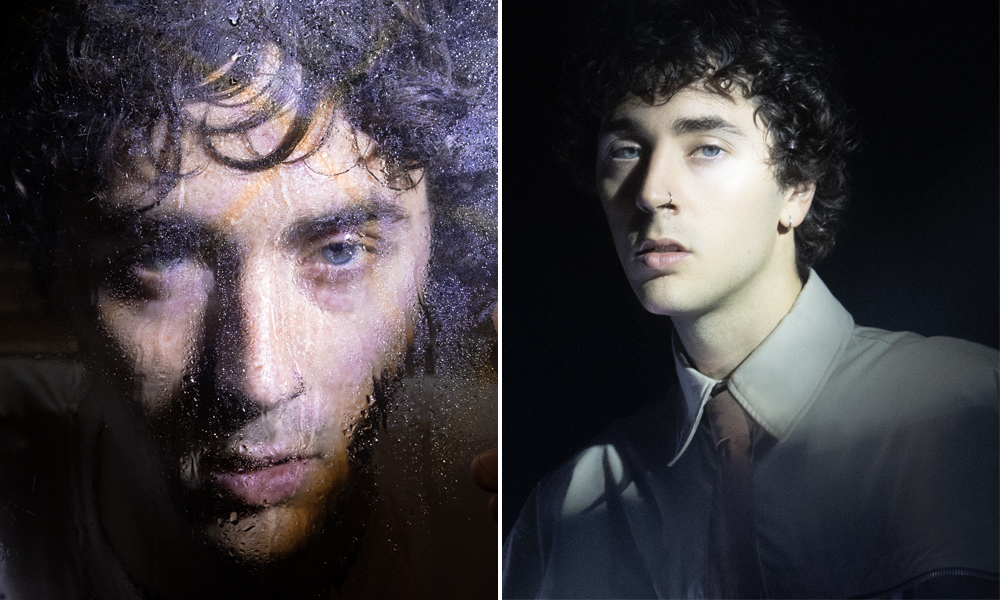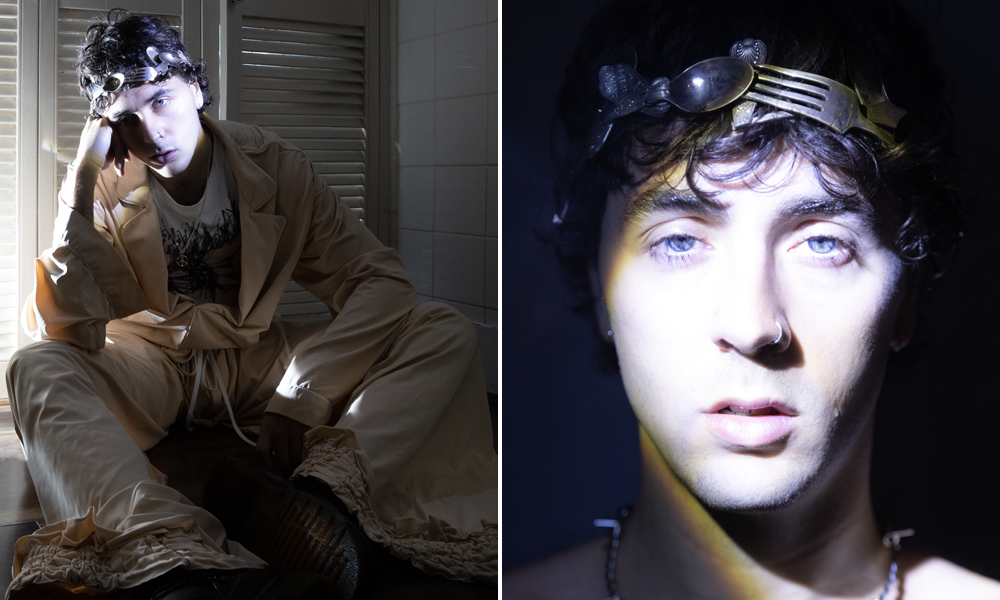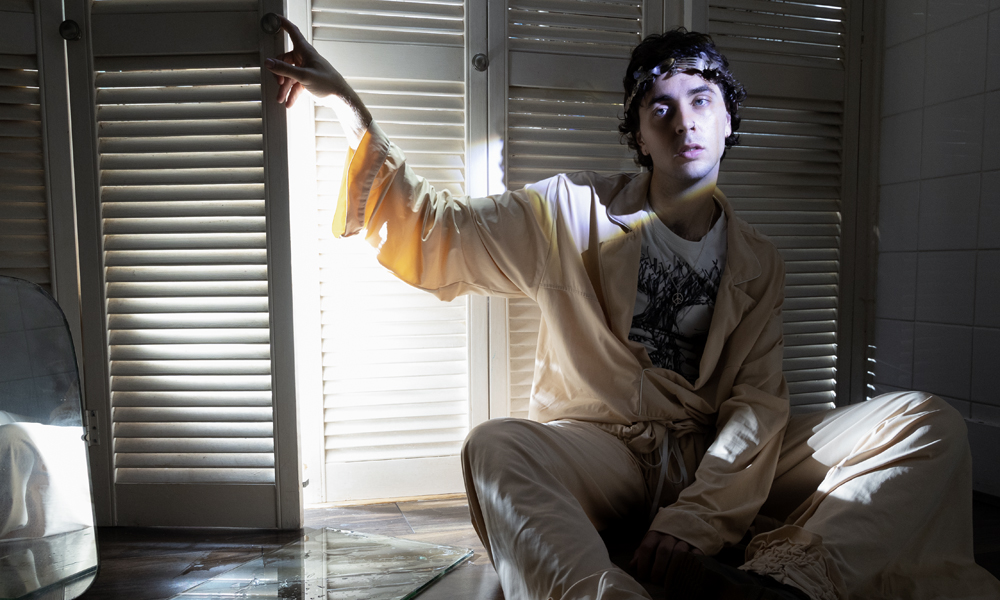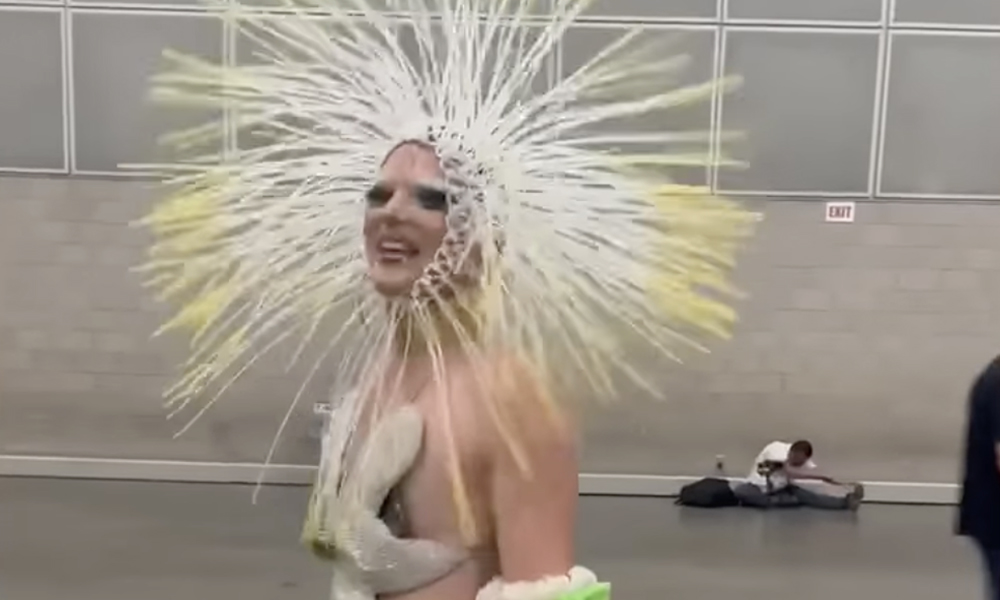Singer-songwriter-film composer Casey MQ opens up on the intricacies of intimacy on his sophomore album, Later that day, the day before, or the day before that…
By Elio Iannacci
Photos by Reece Owens
Every time I think of composer, musician and vocalist Casey MQ, my mind conjures a memory of his performance in Montreal on October 26, 2016. I had been invited by chance to the concert, which had several emerging artists on stage, each experimenting with their own solo sets. It was emceed by Chilly Gonzales – the producer famous for co-creating Feist’s iconic Let It Die album. As soon as MQ sat at his grand piano and began to play his ballad, “Hysteria,” it was clear that his presence and musicality outshone all the acts that came before and after him. It was the very definition of what a Hollywood publicist would hyperbolize as “a big break” since his performance emitted something so profoundly intimate on a large scale. As MQ’s hands took to the keys, his grace and force delivered notes that completely hushed the audience and echoed the spiritual energy of the environment he sang in – a baroque Roman Catholic church named Le Gesù.
“It’s been almost 10 years since I did that – can you believe it?” MQ asks in disbelief via Zoom from a music studio in Brooklyn. Actually, it has been exactly eight years since that spellbinding MQ Montreal moment, and in that period the Toronto-based/constantly touring talent has kept busy. He’s gone on to compose soundtracks for more than 10 films, remix the likes of Christine and The Queens and Anna Clendening, release three EPs and a solo album of his own (babycasey of 2020). With the amount of musical projects he’s produced, one would assume that MQ would balk at looking back at his fledgling artist days, but that isn’t the case at all.
“My new album is a complete return to what ‘Hysteria’ represents,” he says of the piano-driven structure and soulful vocality of the ballad. “These recent songs are like brothers and sisters and cousins to ‘Hysteria’ because they share so many of the same musical references, tones and sentiments. I still think it is one of the most important songs I’ve written, and even though I wrote it in 2014, it’s so connected to my new body of work.”

What MQ is referring to is his sophomore disc, Later that day, the day before, or the day before that. The album, slated for release June 7, may connect to his past but it is a vast departure from his 2020 debut, babycasey, which explores the sonic ecosystems of ’90s and 2000s boyband and girl group culture through a gay and queer lens. If you have yet to hear babycasey, it is a sonic trip, liberally revisiting two DayGlo eras of scrubs and ballers by giving subtle shout-outs to the Backstreet Boys, Spice Girls and Aqua.
In comparison, Later that day lives in a dimension of its own, reflecting MQ’s maturity in songcraft. “These new tracks are like a pack of love letters written for past loves, future loves and, of course, me,” he says. A prime example of MQ’s most current introspection is “Grey Gardens,” a track completely unrelated to the classic film documentary. MQ says the song blatantly juxtaposes his first album by way of its meticulously tender keyboard work. One of the most poignant lyrics from the track – “remembering is not the opposite of forgetting” – is fuelled by Marcel Proust’s novel In Search of Lost Time, which MQ spent months reading, rereading and annotating. “It is so important to cite Proust when talking about this album because it’s a queer book that took me the full year to absorb,” he says. “I’ve spent a lot of time with Proust’s words, so they’ve consciously and subconsciously made their way into the music.”
Other influences on the album include the work of French writer and film director Chris Marker, who famously made a documentary in 1983 called Sans Soleil. Marker’s highly unorthodox documentary discusses the intricacies and fallacies of human memory, perception and self-creation.
“The way I’ve been slowly churning new songs is a response to my first album, babycasey,” MQ says, noting that he’s had to plot a series of past pilgrimages to finish the disc. “My first album was about wanting to be in a boy band – even though it was an impossibility for me. I do think that with all the production, big electronic sounds and coloured lights, there was always something melancholy underneath babycasey – there’s a lot of soul in it. This new album is about diving right into that soul with memories of my own. So much of it is me at a piano or keyboard, excavating the layers of the relationships I’ve had.”
A track called “Tennis Man” has MQ digging into a part of his life which examines a past romantic connection shaken due to a lover who felt too afraid to embrace who he was or what MQ offered. The opening lyric of the song, “I met a new boy / he’s not like you / he isn’t terrified,” conveys a hard, familiar truth for queer individuals who are in the closet or are in love with someone who is. “I spent forever writing and rewriting the song, but I knew what needed to be said, and it was coming through me at a moment that I could allow for it,” MQ says. “I felt like I was finally in an uncompromised space where I could look back clearly. He doesn’t know I wrote this about him, but I tried to talk about the limitations we had in the most loving way.”

A song called “Is This Only Water” sounds like an internal monologue where MQ self-interrogates through poetic images and lyrics that question heterosexual, monogamous templates of relationships. “That song is really an inventory of thoughts that look at all the hurdles you get when you’re born into an artistic life, a queer life,” he says. “It’s a song where I address how I start to struggle with truth when it appears in love. I wanted it to speak to the things that I wanted and work through how I couldn’t tell if I actually wanted them.” The song includes the lyrics: “Long before I heard the chorus sing / I was asking dreams for prophecy.” That line came from what MQ states were many long discussions he had with an ex-lover. “We talked about it for so long…the idea that a dream might be an opportunity to give us some clues or answers for the future,” he says. “Asking dreams for prophecy is a way of calling for hope.”
One of the most quixotic and chaotic songs on the album is the stunning “Me, I Think I Found It,” where he coos and croons to “a love that is untold” and one that “feels like home.” As one of the album’s core love songs, the track is devoid of clichés and seems to test MQ’s emotional IQ.
“Understanding my relationship to being gay is obviously an ongoing aspect of my life,” he says. “‘Me, I Think I Found It’ was about me wanting to express something intense to someone who was far away – someone I wanted to be as close as possible to. Even in my alone state, I felt closer to him.
“I was in that relationship for eight years, so I was actively participating in love. I was giving it so much and I felt it back, and I was writing about how it can leave a deep impression even when you’re not in the same country.”
More than anything else MQ has released as a solo artist, Later that day, the day before, or the day before that blends his pop sensibilities with his experiences writing and producing songs for films such as Learn to Swim (a project he won a Canadian Screen Award for). The songs from Later that day also present themselves like parts of a score (perhaps to MQ’s own biopic?), particularly in synth-laden cuts such as the album’s first single, “The Make Believe,” as well as songs such as “Dying ’Til I Was Born” and “See You Later” – both of which, with their ethereal structure, could easily be placed in flashback sequences in work by auteurs like Sofia Coppola or Todd Haynes.
Regardless of his affinity to cinema and all its glory, MQ’s love of cross-cultural artists who have each shifted the zeitgeist can be heard in spades throughout Later that day. His mainstay inspirations – painter/singer-songwriter Joni Mitchell, the late great gay cellist/composer/disco producer Arthur Russell, classical music titan Claude Debussy, Icelandic composer Jóhann Jóhannsson and English singer-songwriter-composer Mica Levi – are heroes who have kept his aspirations going. “I’ve been overwhelmed by people who make brilliant music and art,” he says. “Now I hope I can be the one who overwhelms.”
ELIO IANNACCI is an award-winning arts reporter and graduate student at York University whose research interests include ethnomusicology and gender studies. He has contributed to more than 80 publications worldwide, profiling icons such as Barbra Streisand, Lady Gaga, Aretha Franklin and Beyoncé. His academic work is supported in part by funding from the Social Sciences and Humanities Research Council.







POST A COMMENT